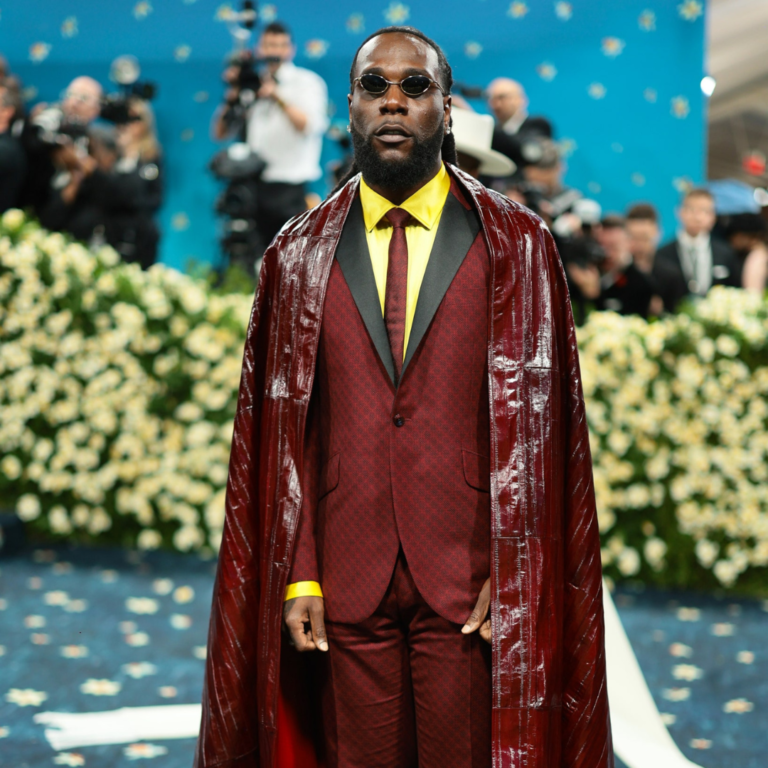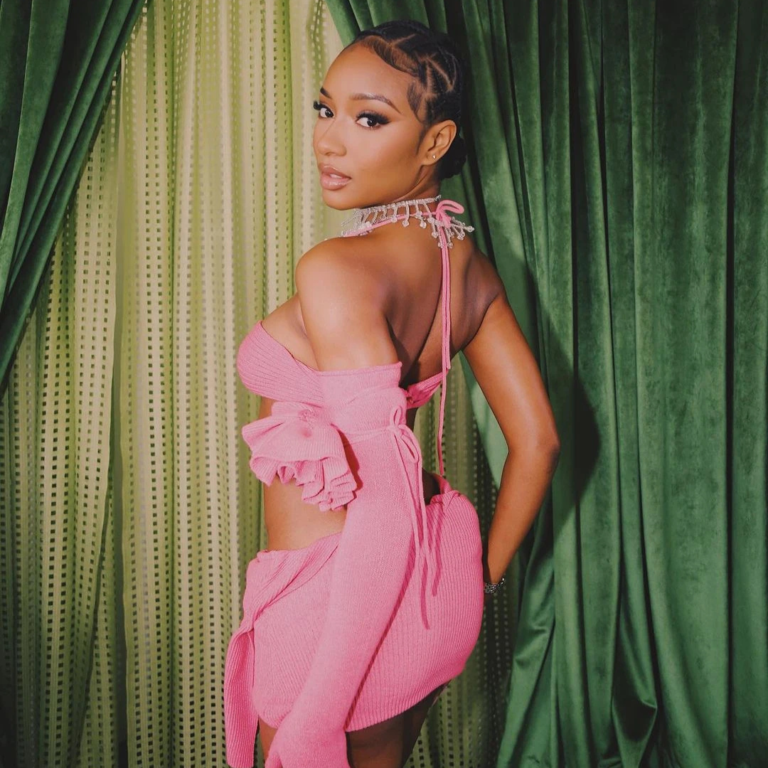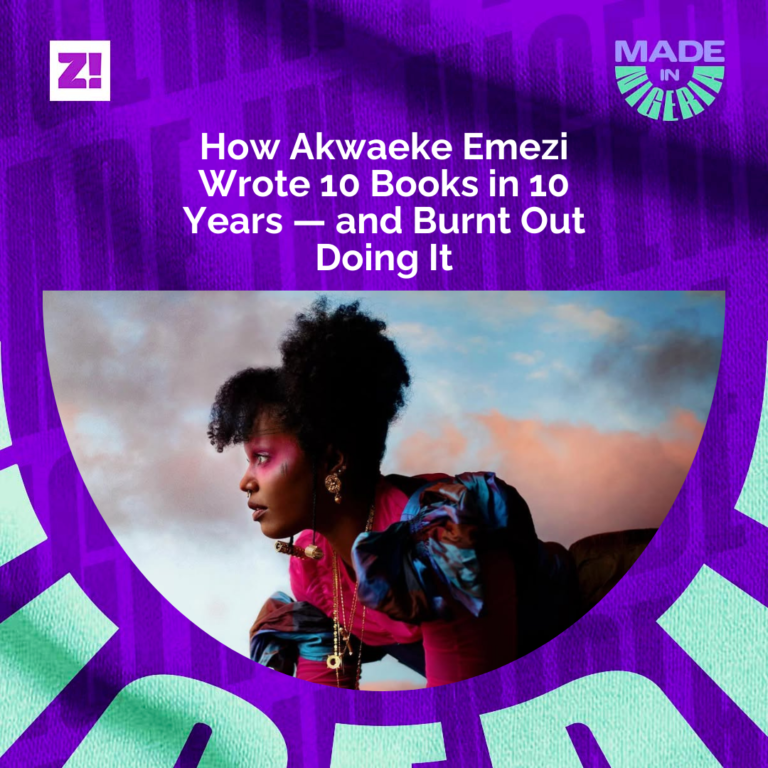Writing wasn’t Yomi Adegoke’s first choice. She went to Warwick University to study law and, as a hobby, decided to start a pop culture blog. Well, the rest of history. She worked as a writer at Channel 4, The i Paper, the Telegraph, and most recently, the Guardian.
Her 2023 book, The List interrogates the excesses of the #MeToo movement at the peak of the anonymised shitty men list. It became an instant bestseller and is being developed into a TV series by HBO Max, the BBC and A24. She’s an executive producer, naturally.
In this week’s edition of #MadeinNigeria, she opens up on starting a magazine at 20, having a lot to say about #MeToo, and how the left is losing its way.
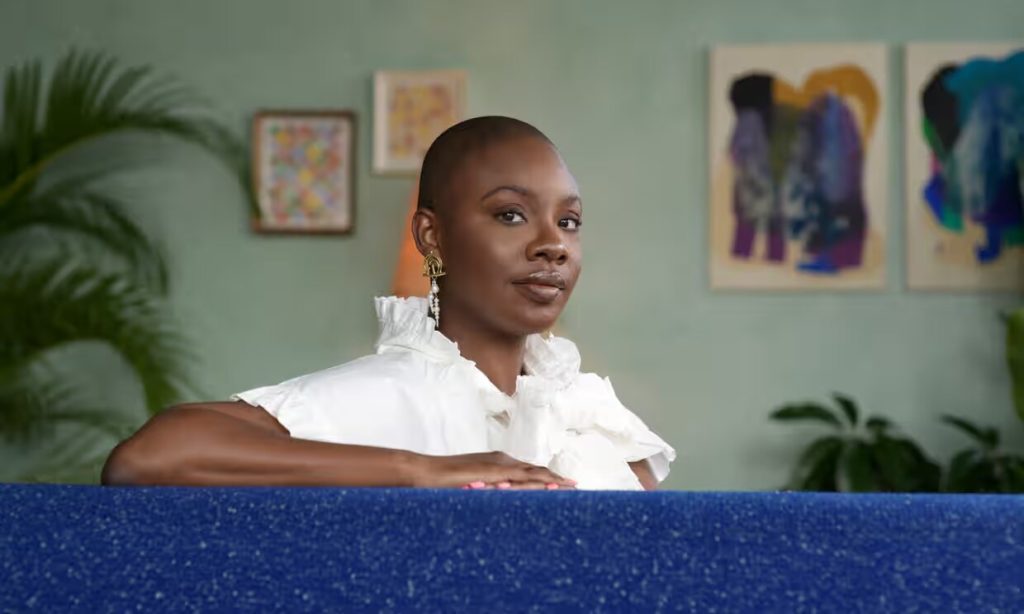
When did you realise you wanted to be a writer?
It took me a long time. I studied law at university. It wasn’t the cliche of my parent pushing me into law, but I definitely did grow up with the awareness that creative pursuit doesn’t necessarily lead to financial stability, and that was my priority. I’m Nigerian, after all. I wanted something that was going to make sense for my future.
Almost immediately after arriving at university, I knew I wasn’t a lawyer and that liking to argue doesn’t mean you’re a lawyer. Painting and writing were the way I always expressed myself but I saw writing more like a hobby. So I started a blog. It had a couple of readers and was about pop culture. It was actually a guy (who is actually in the acknowledgement of my book, The List) who first told me I could make money writing. He used to read my blog, and he said to me, “Do you realise you can get paid to write this? This is pop culture journalism.” I had not even thought of it. It was a hobby.
The idea of being paid to do something that you enjoy felt kind of foreign to me. I’ve always had this idea that you must toil for your money, so I realised this late.
So how did you get your first writing job?
I took a year out of university. During that year, only God could tell you how many applications I filled out. It has to be in triple digits. I applied for every single internship at every single magazine. I remember applying for a casino magazine, a gardening magazine. But no one was taking me. This was 2012, and England had so many initiatives and charities that would encourage creativity among young people. One was called O2 Think Big and they used to give a grant. It wasn’t a lot of money, maybe like £500, that you’ll use for a creative project. They was also Vinspired, and they gave £300. I took those grants. If I could not get work experience, I was going to make work experience.
So, something that I will never think to do now, I said to myself, “I was going to start my own magazine because I’m applying to all these magazines and they are not hiring me.” You know the vicious cycle: You need experience to get experience. So I was like, “I’m just going to create something and show that as my work experience.”
I launched a magazine called Birthday Magazine, aimed at young black women and girls. I used to distribute it at the hair shops in my area. I lived in an area called Croydon in London and it is a very black area. Back in 2012, the media wasn’t really catering to black women the way it is now. You didn’t have articles about how to look after natural hair in mainstream publications.
I did that for a year, and I used that to say that this is the evidence that I can write.
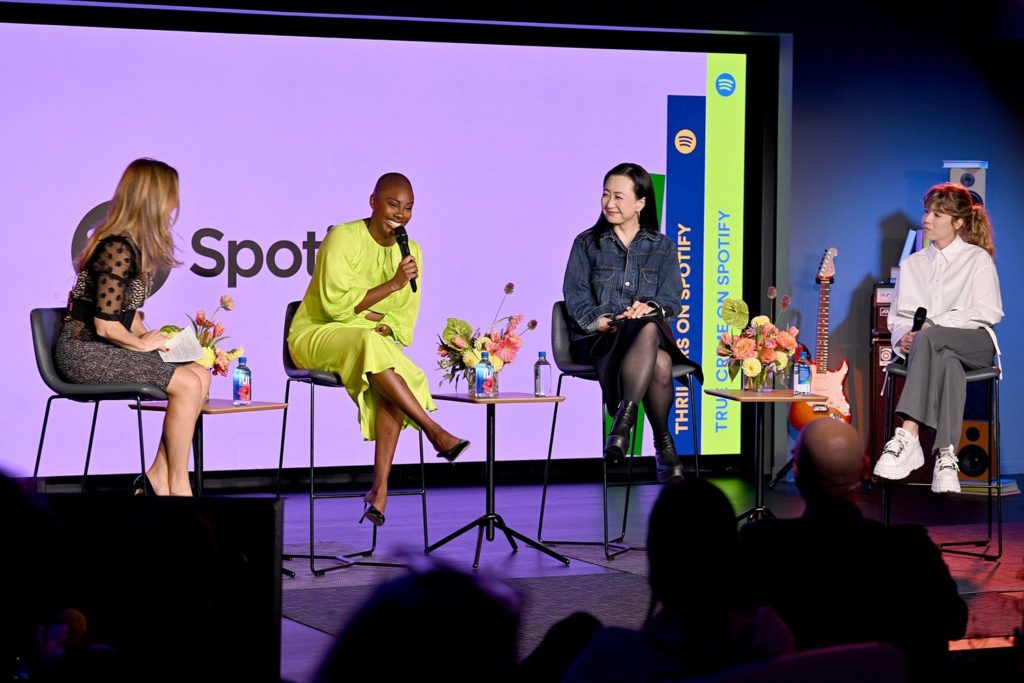
Why do you think the industry didn’t see your talents prior to starting the magazine?
In the UK at that time, the percentage of black female journalists under the age of 30, even now, is remarkably low, especially if you’re not privately educated, which I’m not. So back then, in 2012, trying to knock on this door, this little scrappy girl who wasn’t white and wasn’t necessarily middle class in the British context, was hard. The things I wanted to write about were the things that I wasn’t seeing in the media generally.
It’s crazy to think of a time when Afrobeats was a niche genre of music. When I was growing up, many white people didn’t listen to Afrobeats and Grime music, and I wanted to write about the music I liked: Grime music, Afrobeats. I wanted to review them, and there just wasn’t appetite for it. I used to write about racism, sexism. I wrote about things that felt community-specific, and they were like, “This matters to you and people like you, but most of our readers aren’t like you”. The pitches I’d send people, they just didn’t get it.
What was the experience building Birthday magazine?
It was so much fun.
I thought you were going to say it was so hard.
It was hard, but I think I didn’t even notice it so much. I think I was 20 or 21. You just have this delusion and energy when you’re young that you’re able to do things. It was hard, but the stakes felt so low. If the magazine turns out rubbish, they won’t tell me to return the money, you know. I wish there were more initiatives like that. A lot of these charities have been shut down under our conservative government. I was the editor. I was in charge of everything, finding contributors. I look back now and I’m like, who sent me? I was doing photoshoots. We had a website. It was just me on my own working on my laptop.
How do you balance being passionate about work and knowing it is a capitalist system?
I’m freelance now but it’s something that I thought about a lot when I was in full-time employment. When I started my career, we were moving into how many views and shares something gets. The value of the piece is tied to how many views it gets and not if they engaged with it, and often when people share the article, it doesn’t mean they’re engaging with it. This was the rise of the thing that people called “churnalism.” They are basically churning out stories that they think will go viral.
A lot of journalists measure the value of what they write by how viral it goes, and it’s not our fault because if we are not able to get those numbers, the platform could shut down. I struggled because there were so many pieces that were important to me, but I wasn’t sure if people were interested in them. I pitched a story about infant and maternal morbidity rates, but it was difficult to get the piece off the ground. Now, thankfully it’s a conversation we’ve started having.
What is also different now is that I am still a journalist, but my primary source of income is from books. This means that when I’m writing about something, it’s a topic I’m really passionate about. That’s not a luxury most journalists have.
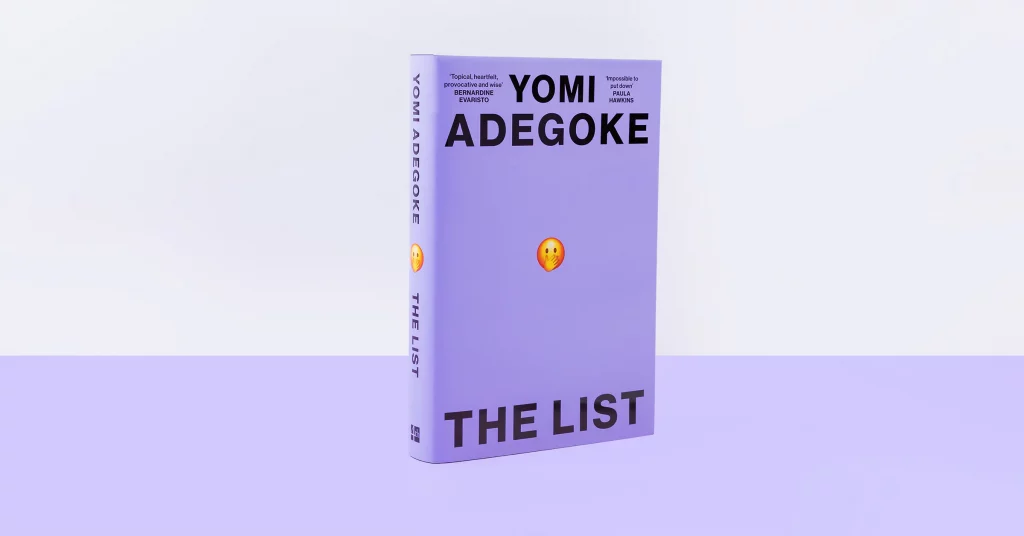
What does it feel like to have that luxury?
I think it feels creatively freeing. I consider myself a privileged person because I used to write for free and have always written for free. To be able to monetise it to a small degree is great, but to be able to monetise it to the extent that it has changed my life is incredible. I feel so lucky that I never feel like I have to do anything I don’t want to.
Why did you decide to write The List?
I wrote it during lockdown. I didn’t think it was going to be lucrative or anything. Everybody was making sourdough bread, and I was like “That’s not me”. Much to my parents’ disappointment, I’m not be able to cook. I didn’t think it was going to be a bestseller or anything. I had hoped it would. But the reason I was able to take that risk was because I had written other books that had been successful. I was trying to write something that meant something to me, and by virtue of that, I think it did very well. I write what feels authentic to me, which many people don’t have the luxury of doing.
The book is also about the #MeToo movement and mob culture. Why is that?
I had a lot to say. In late 2017, I came across many allegations that were disseminated via viral lists. There was a really famous one in America called “The Shitty Media Men List,” which was looking at male journalists that have been abusive. When I saw the list, I was like, “This is great. There is no smoke without fire.” Many women have been denied justice for so long. Men have been able to abuse with impunity. It’s great to see the internet be a means to providing justice. All kinds of things have become social justice causes online, like #BlackLivesMatter.
I grew up watching TV shows like Catfish, where someone is talking to someone they think is someone online, only for it to be revealed it’s someone else. I grew up with my parents always saying, “Be careful of who you speak to on MSN Messenger because you might think you are also talking to a teenage girl unknown to you it’s a man halfway across the world trying to groom you.” Also, as journalists, we’re in the middle of a fake news crisis. Now, we’ve even got AI, which is exacerbating the crisis.
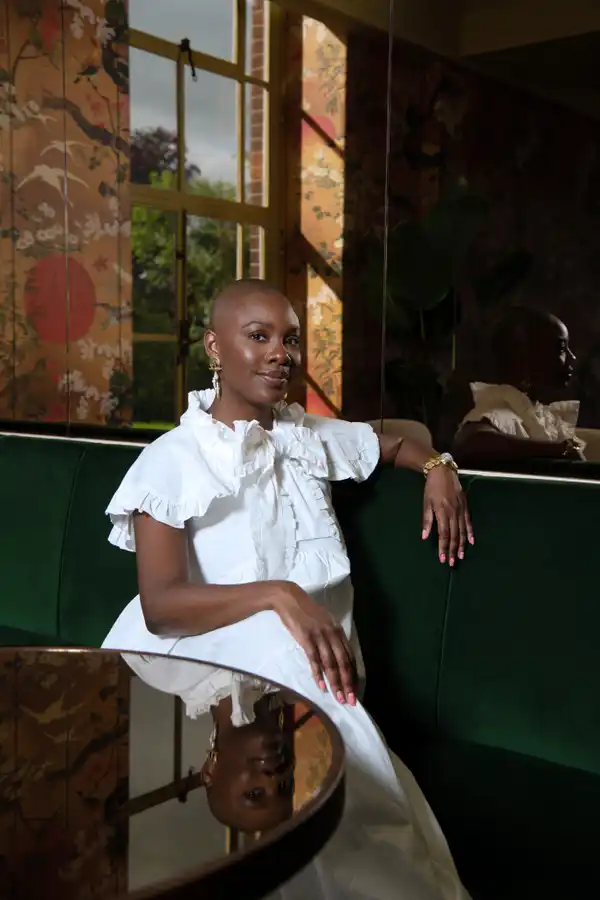
As much as I understood the aims of these lists, as a journalist, I had to question their ethics. Two things can be true at once. It can be true that abusive men need to be held accountable. Women are being failed by the system; that’s either the police, the legal system or just HR at work. But it can also be true that lists of this kind, being anonymous, but also anyone online having access to them means they are very susceptible to being used for nefarious purposes, being undermined which now undermines a whole movement. People lie online.
Nuance is my thing. I’m a fence-sitter, so I was like, “Let me work out my thoughts in writing.” I was going to write a long piece weighing the pros and cons of the ethics of this, but everyone was on lockdown, and I was like, “I could just write a novel.”
There have been arguments about how critiquing the #MeToo movement or the ethics of those lists makes one a right-wing head. What do you say to that?
I think it’s an intellectually dishonest argument. Acknowledging that more than one thing can be true is just part of being a critical thinker. To me, acknowledging that women are very rarely given justice in the legal system does not negate the fact that anonymised lists online that have not been checked are susceptible to being abused. How can you acknowledge that catfishing happens, that we have a fake news crisis and say it’s impossible?
This type of approach to justice is flawed. What I have seen repeatedly happen is that even though 99% of the allegations on the list are credible, if one person was mistakenly put there or you don’t have the context, everybody latches onto that story and says, “Look at this one person.” That pulls our movement backwards.
What is happening is that right-wing people are owning the conversation on cancel culture that should be happening on the left. Rather than weaponising my book, what people are weaponising is the silence of the left, our complicity often in not having real conversations about cancel culture and free speech.
We’ve pretended that everybody who has been cancelled deserves it, which simply isn’t true. There are multiple conversations where someone can say someone has taken advantage of our well-meaning movement. But because we are silent, right-wing people come in and say well, according to the left, there is no such thing as cancel culture. And if you are a person who thinks these lists are flawed, then you need to be having these conversations with us on the right. You then play into the hands of extremists.
There is nothing you can do to stop me from going to Twitter, making a burner account and accusing you of whatever I like. The only thing that is stopping us is sanity. Not everybody is sane online. People will take advantage of anonymity online to lie.
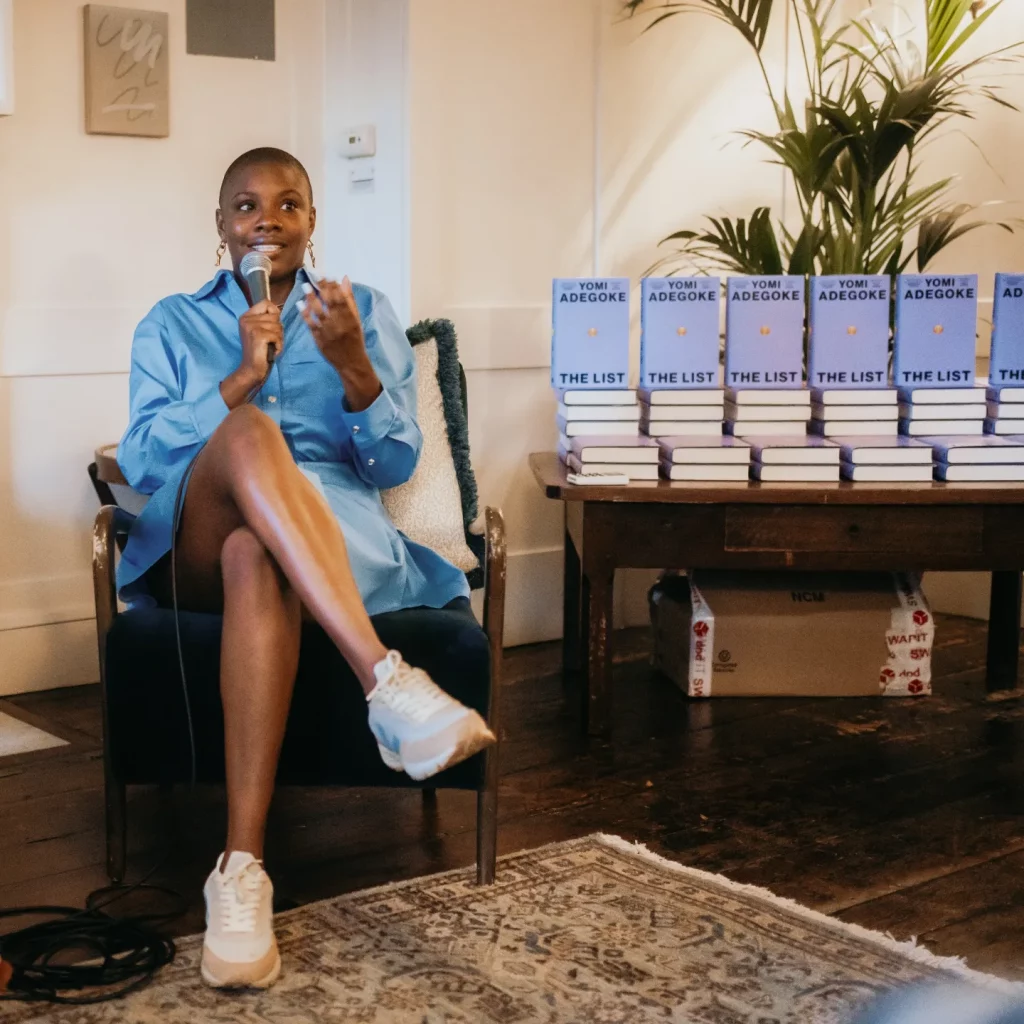
Will you ever write for the website, Unherd?
I personally don’t think that I will need to write for a platform like that. I think that often, a lot of the arguments on the website come from a political viewpoint that doesn’t align with my own. I’m not mad at people who choose to write for people with different views from their own. But I think that my voice is better placed somewhere like the Guardian.
They are preaching to the converted. Many contributors seem to be right-leaning. And they are having conversations often about cancel culture. I might have arrived at a similar conclusion, but I didn’t reach it in the same way.
But it also scares me when people say if you believe this thing as well, then you must share this political idealogy. There are some ideas that are like that. But we’re getting to a place where if someone that is right-wing said the sky is blue, acknowledging it makes you right-wing. That’s not clever. For me, there are some things that are absolutely true. One of them is that anonymised lists being disseminated with certain allegations are subject to potential abuse, and I don’t think that is a controversial issue.
Free speech is a pillar of left-thinking idealogy. But we now allowed the right to come in and commandeer conversations around free speech. Why is Chimamanda speaking about free speech, and she’s being posited as right-wing because she’s speaking about free speech?
With Chioma Nnadi leading Vogue and Kemi Badenoch leading the Tories, Nigerians have risen atop UK legacy institutions. Why do you think this is happening now?
I think it has always been happening. I think Kemi Badenoch has made it more obvious, but Naija no dey carry last. The Nigerian spirit is inherently ambitious. My parents used to say to me if you want to write, you’re gonna be the best writer. If I were really about money, I wouldn’t be a writer. But I think it’s very Nigerian of me to have been able to turn it into a lucrative thing. When you are in the UK, there is that phrase that as a black woman, you’ll work thrice as hard, but my parents never said that to me. They’ve always said you will thrive because of your identity, not in spite of it. I think Kemi Badenoch is getting way too much credit because we’ve been doing it.
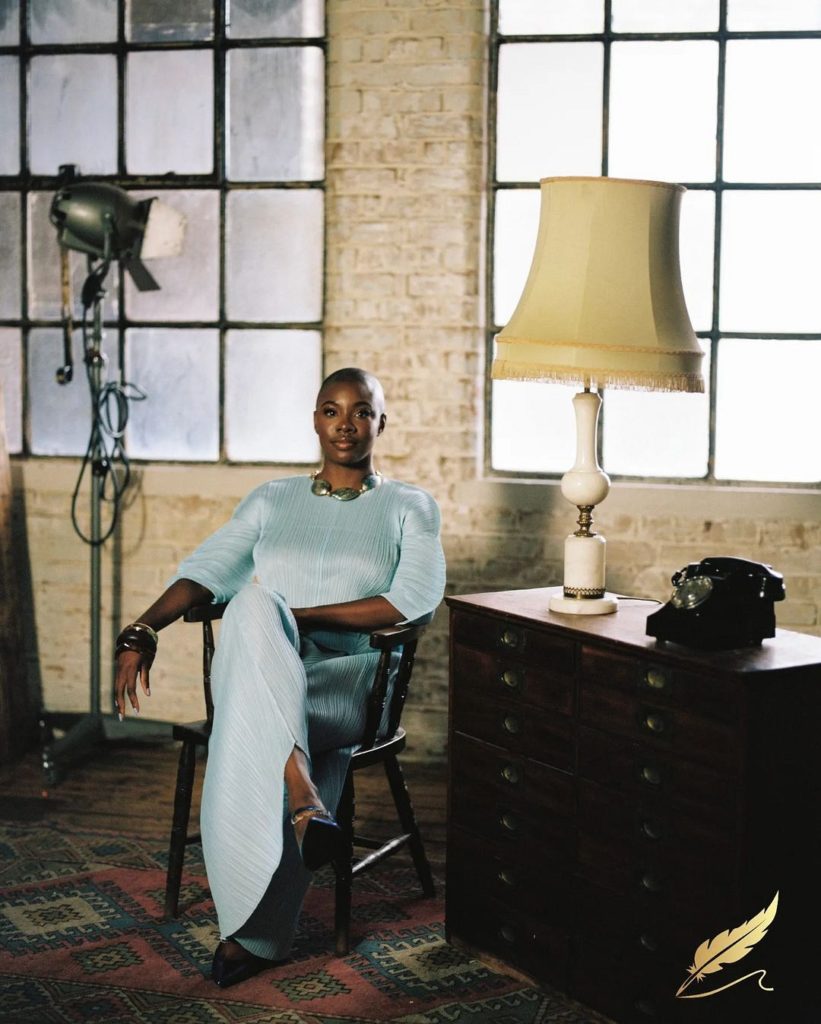
Where do you see yourself in five years?
I just finished writing the pilot for my TV show, so my show will be out. My life will be quite different. I’m really excited about it. It will bring a new audience. I’m writing my next book; I hope it will be out. I’m excited about resting and allowing my work to breathe and speak for itself. I’m really excited because I’m just one girl in Croydon talking.

